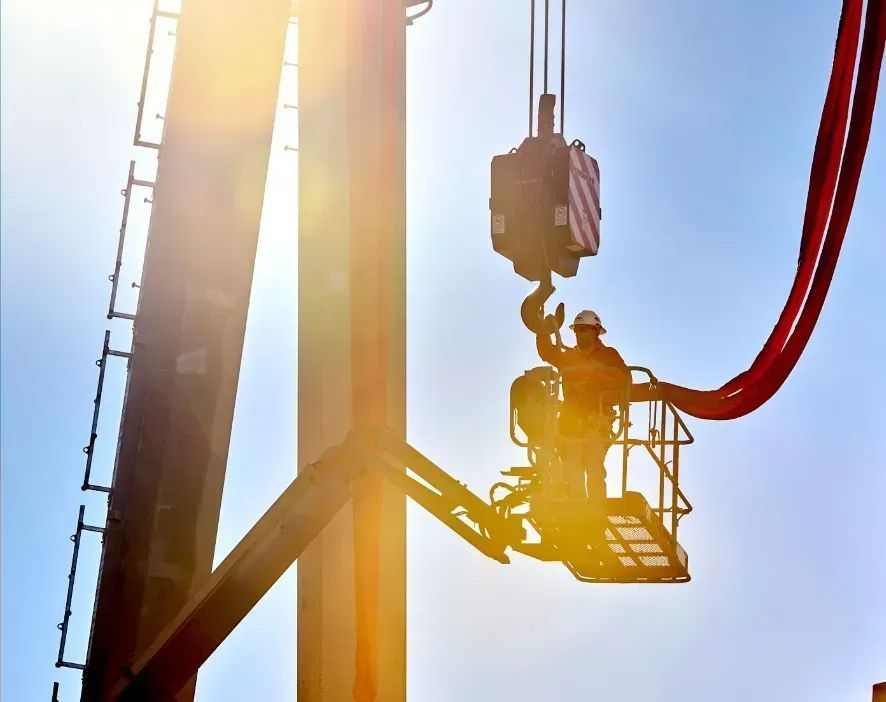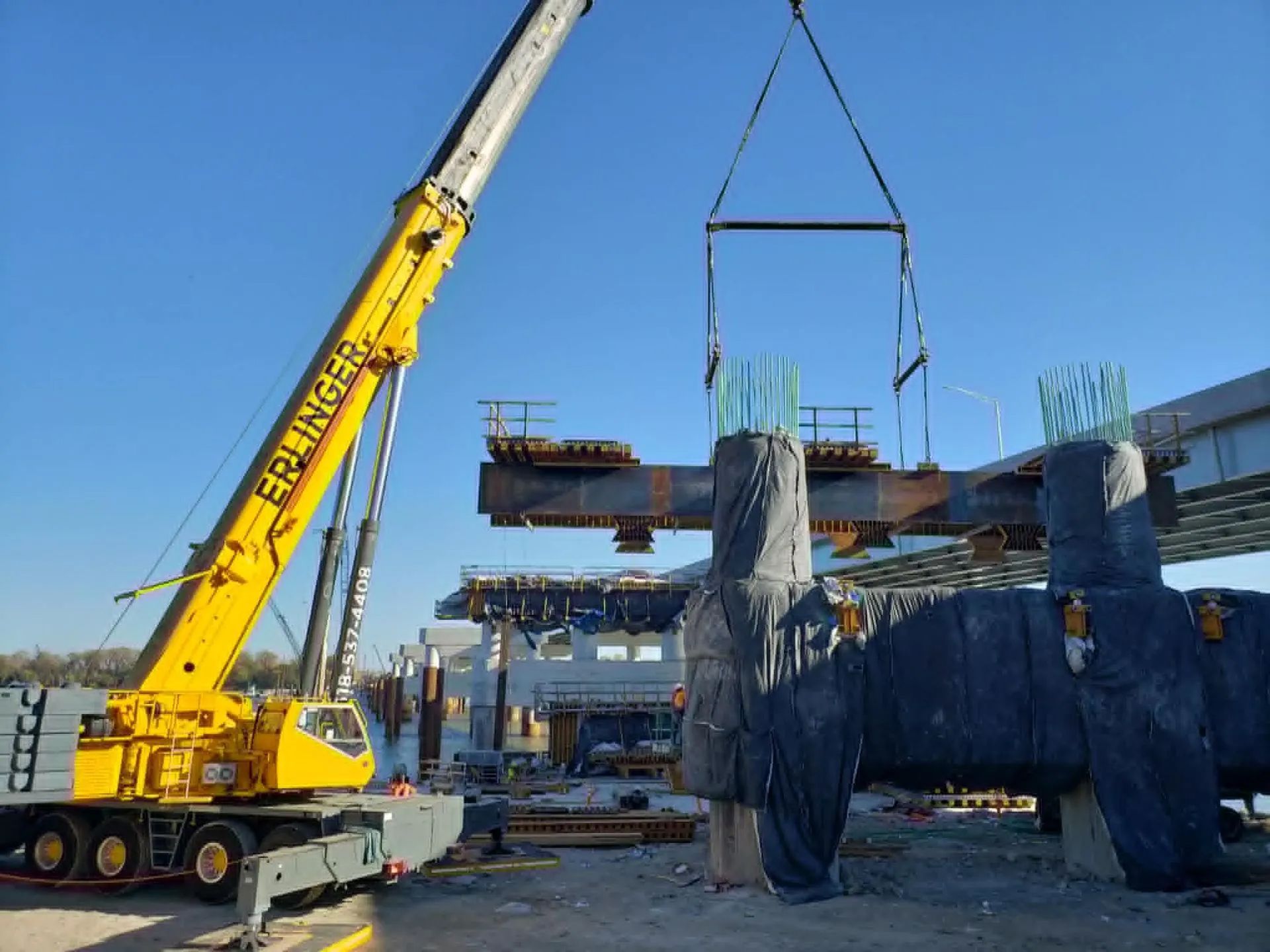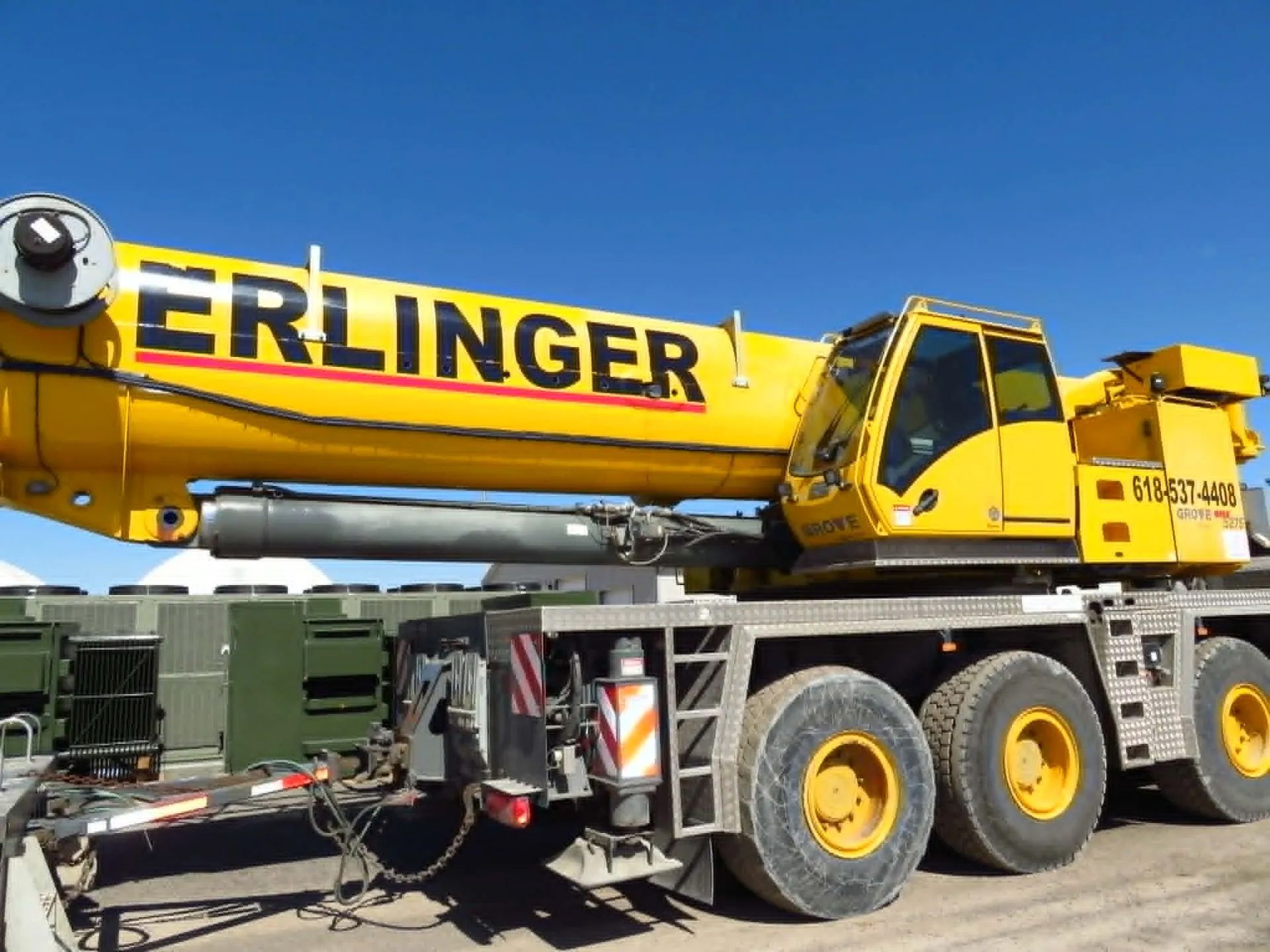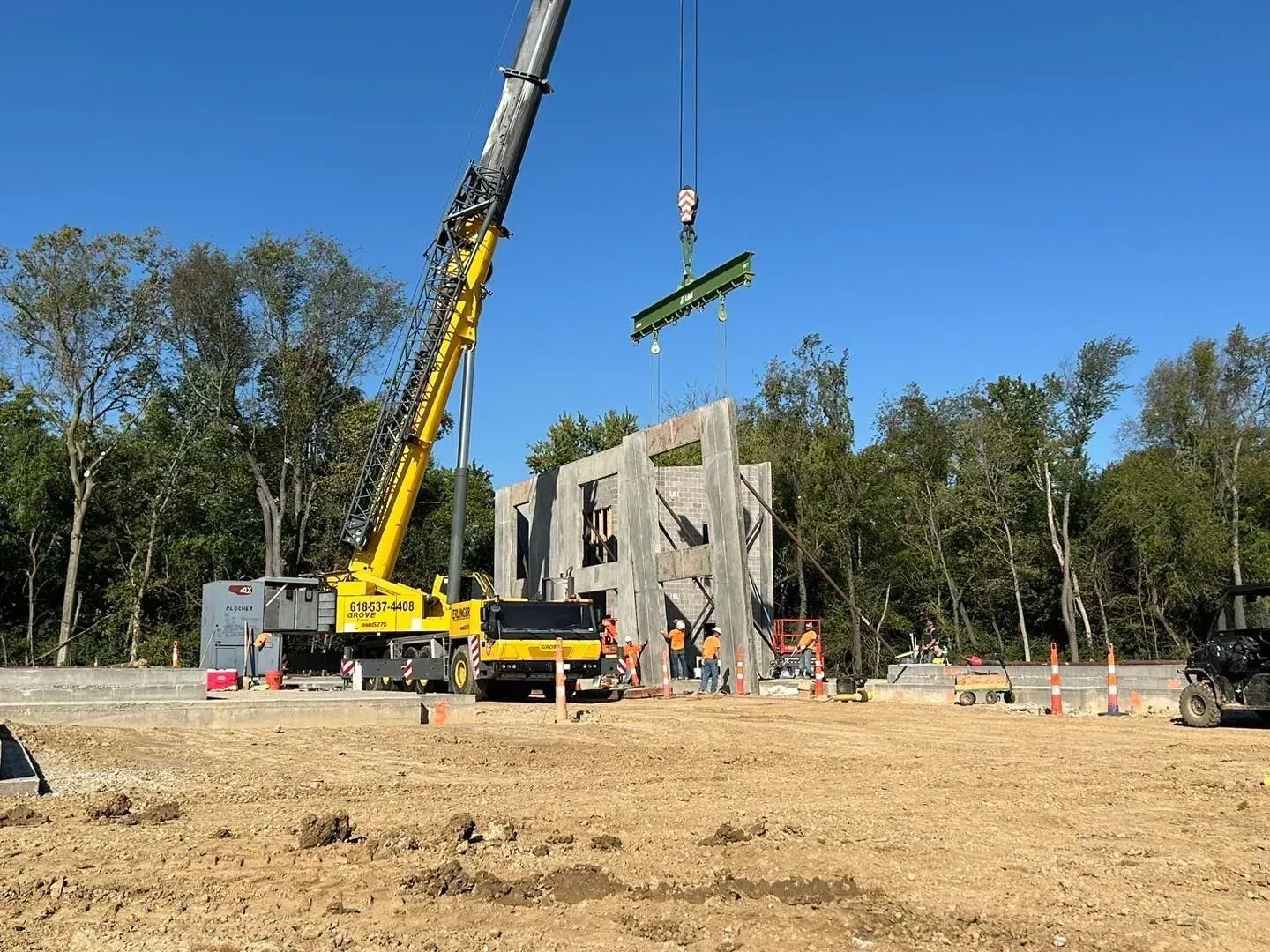Navigating Crane Services: Certification and Safety Best Practices
October 9, 2025
October 9, 2025
Highlights:
- Certified crane operators reduce risks and improve project efficiency.
- Choosing between provided or in-house operators depends on cost, expertise, and compliance.
- Safety requires equipment inspections, rigging knowledge, and site assessments.
- Certified operators must maintain credentials through recertification.
- Partnering with Russ Erlinger Crane Service in St. Louis, MO ensures access to trained operators and reliable equipment.
- Proper crane practices streamline construction projects and prevent costly delays.
In the bustling construction scene of St. Louis, MO, securing a certified crane operator isn't just a preference-it's a necessity. Every lift brings risk, and the question of whether to rely on certified professionals or in-house staff often arises. This choice has far-reaching consequences for safety, compliance, and project efficiency. Russ Erlinger Crane Service recognizes these challenges and provides the expertise that local contractors depend on. In this blog, we'll explore crane operator certification, safety best practices, and what project managers need to know to make informed decisions about crane services.
Understanding Crane Services in St. Louis
Crane services are integral to infrastructure and commercial projects across St. Louis. Operators must balance precision, safety, and timelines, often in densely populated or regulated environments. Certified crane operators help bridge this gap by offering specialized training and practical knowledge. Their presence ensures compliance with Occupational Safety and Health Administration (OSHA) standards, which are non-negotiable in modern construction. According to OSHA , operator certification is legally required in the U.S. for most crane types. This regulatory framework reinforces why contractors should carefully weigh the decision between hiring certified providers or relying on in-house personnel.Importance of Certified Operators
Certified crane operators aren't just skilled-they're tested, licensed, and equipped with up-to-date knowledge. Certification programs assess technical proficiency, safety awareness, and regulatory compliance. According to the National Commission for the Certification of Crane Operators , operators must demonstrate mastery in both written and practical exams. This standardized process ensures consistent competence across the industry. For projects in St. Louis, where urban environments pose additional risks, certified operators reduce accident likelihood while optimizing lift planning. Regular recertification ensures operators remain current with new technologies and safety protocols, creating long-term value for both contractors and clients.Frequently Asked Questions
Choosing Between Provided and Own Operators
When deciding whether to use an operator provided by a crane service company or your own certified staff, project managers must weigh several factors. Provided operators often bring years of diverse experience across multiple industries and environments and are well-versed in local codes and site conditions. Conversely, using your own certified operators offers continuity and alignment with company practices. According to the National Library of Medicine , outsourcing specialized tasks can improve efficiency and reduce costs by allowing organizations to rely on external experts who focus solely on their niche. Ultimately, cost, availability, and compliance will drive the final decision.Safety Best Practices for Crane Operations
Safety should always remain at the forefront of crane operations. Inspections, rigging techniques, and environmental monitoring are all vital steps. Daily equipment checks help identify hazards before they escalate into failures. Rigging must be properly rated and inspected to ensure it can handle the intended load. Environmental assessments such as wind speed, soil stability, and ground conditions are also critical. According to Certified Safety Experts , many crane-related accidents can be prevented with consistent pre-operation inspections, proper stabilization, correct rigging, and adherence to safety protocols. Safety, therefore, is not optional-it's the foundation of every successful lift.Frequently Asked Questions
Ensuring Lifting Equipment Safety
Equipment reliability underpins crane safety. Routine maintenance prevents wear-related malfunctions, while manufacturer-recommended service intervals protect long-term performance. Certified operators are trained to identify warning signs, such as frayed cables or hydraulic leaks, before equipment is compromised. Proper load calculations also minimize risks, ensuring cranes don't exceed rated capacities. Using load charts correctly requires specialized knowledge, which certified operators possess. In a city like St. Louis, where weather shifts and urban layouts add unpredictability, this expertise is invaluable. Without vigilant equipment care, even the best project planning can fall short and compromise worker safety. Role of Russ Erlinger Crane Service
Russ Erlinger Crane Service in St. Louis, MO, exemplifies how professional crane services elevate project outcomes. Their certified operators combine technical expertise with practical knowledge of local regulations. By providing both equipment and experienced personnel, they streamline project logistics and reduce liability concerns. Partnering with an established crane service eliminates the guesswork, allowing project managers to focus on other aspects of construction. Contractors who work with Russ Erlinger Crane Service benefit from a proven commitment to safety and efficiency, making them a trusted partner for projects ranging from small commercial builds to large-scale infrastructure efforts.Frequently Asked Questions
Crane services
form the backbone of many construction and industrial projects. Certified operators provide assurance that every lift is planned and executed with safety and efficiency in mind. From rigorous training and recertification to hands-on knowledge of equipment maintenance and rigging, these professionals minimize risks and maximize outcomes. For contractors in St. Louis, MO, the choice is clear-partnering with experts like Russ Erlinger Crane Service ensures your projects meet regulatory standards and achieve success. When safety and efficiency are top priorities, relying on certified crane operators isn't just smart-it's essential. Their expertise not only protects workers on the ground but also safeguards valuable materials and equipment during complex lifts. In a competitive construction market, having certified professionals on site can make the difference between costly delays and seamless progress.
Future of Crane Operations in Construction
As construction technology evolves, crane operations are also adapting. Digital monitoring systems, telematics, and predictive maintenance tools are helping certified operators improve efficiency while minimizing risks. These advancements allow for real-time data collection, enabling better decision-making on job sites. According to the American Society of Civil Engineers, integrating technology with skilled labor will be critical for meeting future infrastructure demands. For contractors in St. Louis, MO, this means that partnering with services like Russ Erlinger Crane Service provides not only immediate expertise but also access to operators who stay at the forefront of industry trends. By combining human skill with technological innovation, the future of crane operations promises greater safety, precision, and productivity for complex projects.














